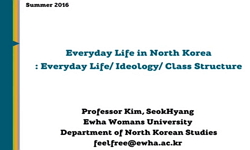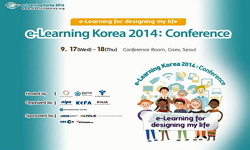Since the declaration of "A New Japan-Republic of Korea Partnership towards the 21st Century" in 1998 by the two heads of State, there have been increasing efforts to strengthen the relationship between Japan and South Korea politically and socially. ...
http://chineseinput.net/에서 pinyin(병음)방식으로 중국어를 변환할 수 있습니다.
변환된 중국어를 복사하여 사용하시면 됩니다.
- 中文 을 입력하시려면 zhongwen을 입력하시고 space를누르시면됩니다.
- 北京 을 입력하시려면 beijing을 입력하시고 space를 누르시면 됩니다.
KOREAN SONGS IN JAPANESE MUSIC TEXTBOOKS: MUSIC EDUCATION AND JAPAN-KOREA RELATIONSHIP SINCE THE 1980s
한글로보기https://www.riss.kr/link?id=A100030700
- 저자
- 발행기관
- 학술지명
- 권호사항
-
발행연도
2010
-
작성언어
-
- 주제어
-
KDC
670
-
자료형태
학술저널
-
수록면
43-84(42쪽)
- 제공처
-
0
상세조회 -
0
다운로드
부가정보
다국어 초록 (Multilingual Abstract)
Since the declaration of "A New Japan-Republic of Korea Partnership towards the 21st Century" in 1998 by the two heads of State, there have been increasing efforts to strengthen the relationship between Japan and South Korea politically and socially. Music education is a part of such efforts that Japan has focused on to enhance mutual understanding between the two countries.
Korean music has had a presence in Japanese culture in the past two decades. In terms of music education, the systematic teaching and learning of Korean music was formalized at the National Curriculum Standards reforms in Japan in 1989 and 1998, when the study of Asian music in general, and Korean music in particular, was emphasized as a primary approach towards cross-cultural understanding. Korean music and children's songs were included into new teaching materials. Individually, Japanese music teachers have also undertaken studies in Korean music to develop their own curriculum.
This essay examines the processes of teaching and learning Korean music in Japan in the last 20 years from the late 1980s to the present. I would like to show that the reformed curriculum parallels scholarly Japanese research in Korean music during the same period in terms of concepts and methods, and suggest that the effectiveness of promoting socio-political partnership through music education lies in the integration of teaching curriculum and public education.
목차 (Table of Contents)
- Abstract
- Introduction
- Korean Music in Textbooks for Elementary School
- Japanese Music Education since the Meiji Period
- Post WW2 National Curriculum Standards
- Abstract
- Introduction
- Korean Music in Textbooks for Elementary School
- Japanese Music Education since the Meiji Period
- Post WW2 National Curriculum Standards
- System of Approval for Textbooks in Japan
- Korean Music in Japanese Music Textbooks
- Asian Music in Junior High School Textbooks
- "The Half Moon": Singing in Elementary School
- National Curriculum Standards 1998
- Korean Songs for Elementary Schools since 2005
- Conclusion
- Glossary
- References
동일학술지(권/호) 다른 논문
-
STYLES OF PEDAGOGY AND PERFORMANCE PRACTICES IN CARNATIC VOCAL MUSIC
- 아시아음악학회
- NIRANJANI PRABHAKAR
- 2010
-
- 아시아음악학회
- FUJⅡ KOKI
- 2010
-
INVENTING ETHNIC MUSIC: VOCAL MUSIC OF THE KOREAN ETHNIC MINORITY IN THE PEOPLE’S REPUBLIC OF CHINA
- 아시아음악학회
- KOO SUN HEE
- 2010
-
- 아시아음악학회
- 아시아음악학회
- 2010




 스콜라
스콜라






